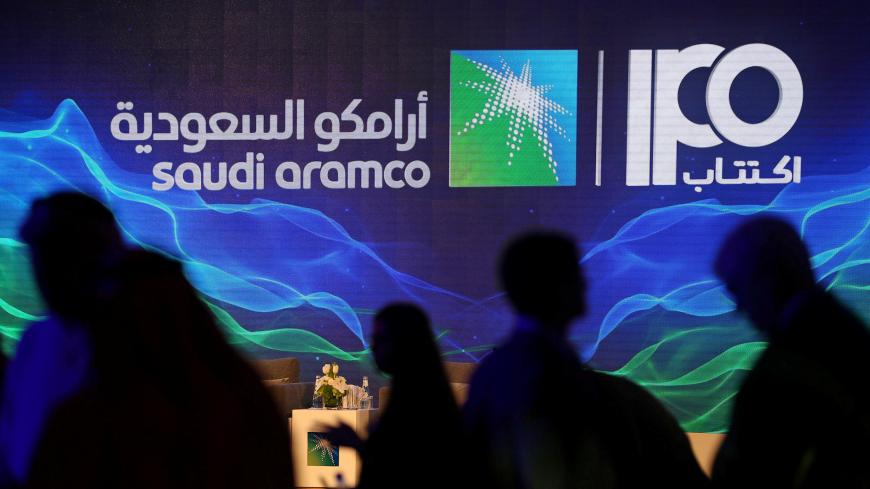The Aramco initial public offering, or IPO, is a big deal, but it should not be. In essence, the three-year hype of the Aramco offering will conclude with the sale of a very small portion, perhaps just 1%, of the mammoth company to a small pool of domestic investors, some bullish institutional investors and maybe a government investment arm of China. At a $1.7 trillion valuation, a 1% sale of shares would earn the government just $17 billion. (For analysis on just how far a 1% or 2% share sale goes to meet Saudi Arabia’s fiscal needs, read here.)
The gap between the expectation and the outcome of the “world’s biggest IPO” only underscores the region’s failure to incubate and nurture new business giants. Aramco is a large and successful state-owned monopoly, forced to sell off shares to citizens and friends of the government. However, it does not inhabit a regulatory environment or rules-based economy that can make it a global, investor-owned, publicly traded powerhouse.



